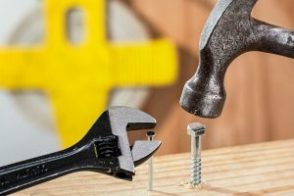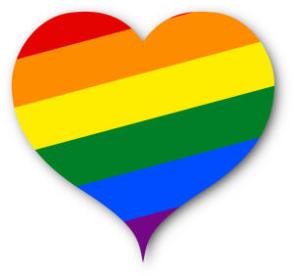Contents
When love between men starts to drift… how gay couple counselling brings you back together.
Love between men/male couples can be deep and steady, but sometimes it drifts. This brief blog post explains, in plain English, how counselling for gay couples (science bit: using an integrated systemic and psychodynamic approach), as offered by Counsellor Dean @ LGBTCoupleCounselling.co.uk can help your most precious relationship rebuild its trust, break its repeating patterns, and rediscover its real connection once again.
When Gay Couples Consider Counselling
Even the strongest gay relationships can reach a point where things feel stuck at best or feel like being in hell at worst.

What brings gay couples in to counselling? (Alanjvm)
Maybe repeated arguments have started to circle around without ever reaching a resolution.
Maybe intimacy has faded into a silence.
Sometimes it’s not conflict at all but a quiet sense of disconnection – a feeling that you’re living side by side rather than together.
For some men, outside pressures such as work stress, family tension, or the lingering effects of rejection can also weigh heavily on the relationship.
When love feels complicated, couple counselling for gay men offers a chance to pause, talk openly, and rediscover what drew you to each other in the first place.
Caring enough to invest in your relationship, counselling gives you a neutral space to understand each other more deeply, strengthen emotional safety, and rebuild the partnership that feels alive again.
How Integrated Counselling Works
Counsellor Dean Richardson MNCPS (Accred/Reg) applies an integrated approach to couple counselling. This means that he helps you both look at your relationship from at least two really useful angles.

Counselling Theories and Models (Gerd Altmann)
- The systemic side shows the patterns you fall into – who withdraws, who pursues, and how conversations spin out. Think of this as zooming out and watching how you behave together.
- The psychodynamic side goes deeper: it explores how past experiences – messages about masculinity, early rejection, or the stress of hiding parts of yourself – can shape how you connect now.
Combined, these views can help you, as the couple, begin to see your behaviour cycles and the hidden feelings that fuel the unhappy behaviour.
Healing by Understanding
Many gay men carry emotional weight from earlier years: family rejection, bullying, or the effort of always explaining who they are. Those experiences can turn into armour that makes intimacy hard.

Healing by Understanding (Alessandro Alle)
In counselling we create an emotionally safe space so that you both get a safe space to lower this armour.
The counsellor will help you both to guide your conversations so both of you are heard instead of hearing blame from your partner.
As defences come down, empathy can grow, and that is the first step toward real intimacy returning.
Advertisement…
LOOKING FOR THE GAY MEN’S COUPLE COUNSELLOR who understands the problems that gay male relationships face?
Contact Dean Richardson MNCPS (Accred/Reg) today and begin your journey toward the more connected, more resilient relationship that you both want.
Stuck in Patterns
Gay male couples can become stuck in repeating patterns of behaviour. Arguing about chores, sex, or time together is rarely just about those topics, but perhaps these are the topics the couple feel they can argue about without opening the proverbial can of worms (i.e. dealing with the sensitive topics that they really want to).

Stuck Behaviour (Arek Socha)
Often the same emotional pattern keeps playing out: one partner withdraws, the other pushes for closeness, and the loop repeats.
In counselling, the systemic lens helps us recognise the loop, and the psychodynamic lens helps us understand the loop’s origin.
Maybe, a long time ago, one partner learnt that needing anyone would lead to rejection, and/or the other partner learnt to defend rather than feel vulnerable.
When learning to detect patterns of behaviour and what they’re really about under the surface, the couple can change how they respond to one another: pain becomes visible, not just provocational, and the couple can manage the actual pain together, rather than argue about who is supposed to be washing the dishes.
Rediscover Intimacy
Intimacy doesn’t always mean perfect sex, constant romance or holding hands at the cinema.

Rediscover Intimacy (Tyli Jura)
Intimacy and connection are about feeling safe to be yourself and to show your needs with your partner.
When it’s been lost, counselling can help to rebuild intimacy-safety, and when the safety returns, physical closeness can follow naturally.
Therapy encourages curiosity – asking fresh questions about each other’s wants, fantasies, and boundaries. By employing curiosity, the couple can learn new information – and with new information comes new choices and new directions in which to take the relationship.
These conversations, handled with care, can lead to a more honest and satisfying sex life as well as simply deeper everyday affection.
Take Home Tools
Counselling isn’t just talk. You get to develop your own clear tools that you can use at home:

Relationship Tools (Steve Buissinne)
- How to spot and name your relationship patterns before they escalate.
- Simple communication techniques that prevent arguments from turning personal.
- Ways to ask for what you need without triggering shame or withdrawal.
- Steps to rebuild trust after distance or small betrayals.
These tools – when developed together with your counsellor – can help you move from reacting defensively to choosing how you want to be with each other.
Pride in Growth and Purpose
When two men invest in their relationship, they strengthen more than their bond – they strengthen a partnership that can weather stress, change, and outside pressures.

Pride through Growth
Counselling helps you bring your full selves – resilience, vulnerability, humour – into your distinct relationship.
By bringing your true selves, your relationship can grow, and you can both take pride in that growth.
Couples in counselling can build a shared confidence, and the quiet pride that comes from choosing to work through difficulties to create a more honest, joyful partnership, may be the most satisfying achievement the both of you achieve together.
First Steps are Just a Conversation
It’s normal to hope problems will resolve on their own. But relationships don’t come with instructions, and when they go wrong there’s no manual to refer to. Asking for professional support doesn’t mean you failed; it means you care about the future of the relationship.

First Steps in Counselling (sayays)
If you want to explore couple counselling, look for therapists (a) experienced with LGBTQ+ relationships and (b) who are qualified to employ an integrated systemic and psychodynamic theoretical model of therapy.
One honest conversation together in the presence of a skilled, experienced counsellor could be the start of lasting change for you both.










0 Comments